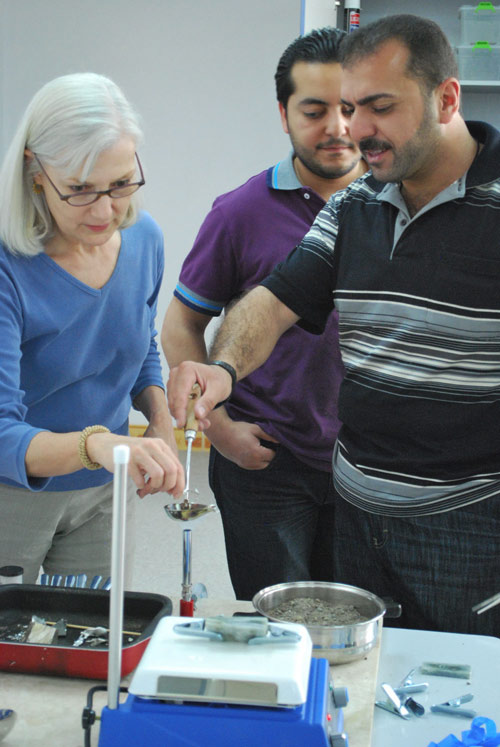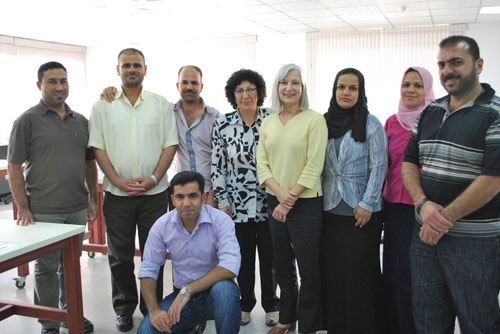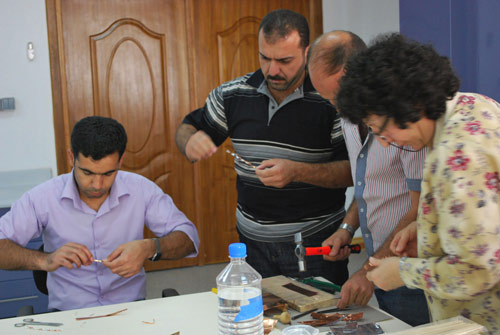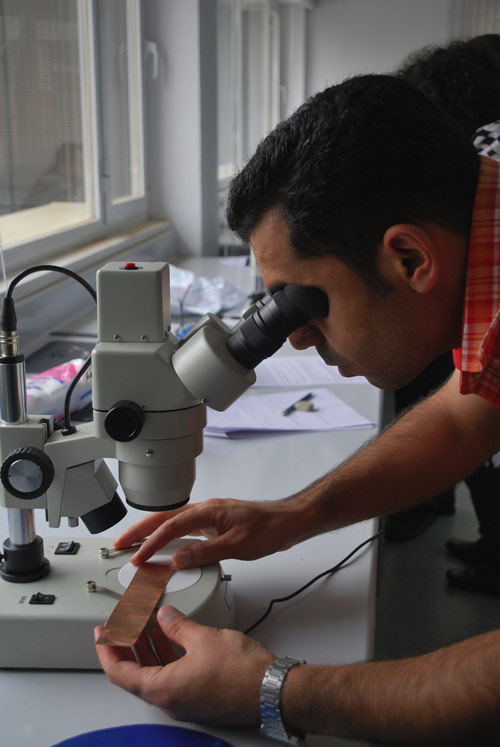 Traveling Exhibitions
Traveling Exhibitions Traveling Works of Art
Traveling Works of Art Conservation Projects
Conservation Projects Excavations
Excavations Fellows
Fellows Exchanges & Collaborations
Exchanges & Collaborations Multiple Items
Multiple Items
The Met Around the World presents the Met’s work via the global scope of its collection and as it extends across the nation and the world through a variety of domestic and international initiatives and programs, including exhibitions, excavations, fellowships, professional exchanges, conservation projects, and traveling works of art.
The Met Around the World is designed and maintained by the Office of the Director.
Traveling
Exhibitions
The Met organizes large and small exhibitions that travel beyond the Museum's walls, extending our scholarship to institutions across the world. See our national and international traveling exhibition program from 2009 to the present.
Traveling
Works of Art
The Met lends works of art to exhibitions and institutions worldwide to expose its collection to the broadest possible audience. See our current national and international loans program.
Conservation
Projects
The preservation of works of art is a fundamental part of the Met's mission. Our work in this area includes treating works of art from other collections. See our national and international conservation activities from 2009 to the present.
Excavations
The Met has conducted excavations for over 100 years in direct partnership with source countries at some of the most important archaeological sites in the world. Today we continue this tradition in order to gain greater understanding of our ancient collections. See our national and international excavation program from the Met's founding to the present.
Fellows
The Met hosts students, scholars, and museum professionals so that they can learn from our staff and pursue independent research in the context of the Met's exceptional resources and facilities. See the activities of our current national and international fellows.
Exchanges & Collaborations
The Met's work takes many forms, from participation in exchange programs at partnering institutions and worldwide symposia to advising on a range of museum issues. These activities contribute to our commitment to advancing the work of the larger, global community of art museums. See our national and international exchange program and other collaborations from 2009 to the present.
 Zaid Ghazi, Mosul Cultural Museum, preparing to cast his carved design in pewter while the instructor, Met conservator Donna Strahan, assists. Translator Abudulah observes in the background.
Zaid Ghazi, Mosul Cultural Museum, preparing to cast his carved design in pewter while the instructor, Met conservator Donna Strahan, assists. Translator Abudulah observes in the background. Students in the May 2010 metal class with instructor Donna Strahan, Metropolitan Museum conservator (fourth from right).
Students in the May 2010 metal class with instructor Donna Strahan, Metropolitan Museum conservator (fourth from right). Metalworking class: learning to make twisted wire for jewelry, 2011.
Metalworking class: learning to make twisted wire for jewelry, 2011. Rafeeq Rasool Sofy, Erbil Civilization Museum, examines abrasive experiments on metal.
Rafeeq Rasool Sofy, Erbil Civilization Museum, examines abrasive experiments on metal.
Conservation training in Iraq
Iraq, U.S.A.
2010–2011
The Institute building has laboratories, classrooms, computer and documentation spaces, dormitory facilities, and a conservation and historic preservation library created by a unique partnership of American and Iraqi organizations and individuals. Equipment and supplies were purchased and conservation and heritage preservation experts created a training curriculum to the highest international standards. The Institute was handed over to the Iraqi government in January 2011 and is managed through a partnership between the State Board of Antiquities and Heritage and the Erbil Governor's office.
The Collections Conservation and Management Program is continuing in 2012 with support from the U.S. Embassy in Baghdad and managed by the University of Delaware. The students—men and women representing a diverse mix of ethnicities and religious beliefs—are conservators, collection managers, and archaeologists from museums throughout Iraq. The curriculum is taught by Visiting Faculty experts brought in from around the world to teach specific topics. The Metropolitan Museum's conservator has conducted intensive workshops on metals conservation.
By the end of 2010, 52 individuals had received training at the Institute and many others had attended public lectures. In 2011, seventeen more trainees attended the University of Delaware Programs; and many others received training in the facility through programs funded by the Italian government. This ambitious initiative to save Iraq's cultural treasures is unprecedented in U.S. conservation history. Regardless of Iraq's political future, these people will have training that they can pass on to future generations.
Partnered with the Iraqi Institute for the Conservation of Antiquities and Heritage (IICAH).


